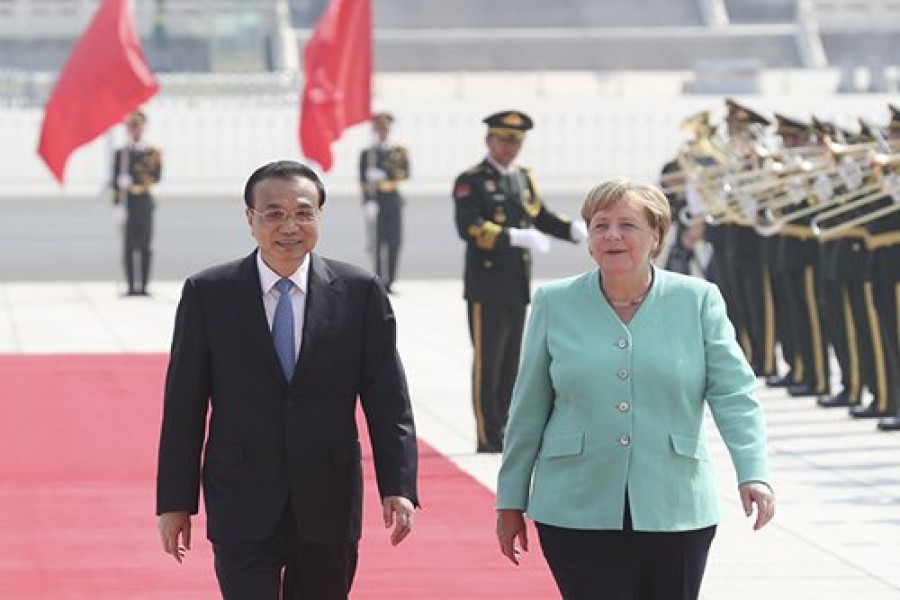German Chancellor Angela Merkel began on Friday her official visit to China. It's a big event for China-German relations. Merkel, who had visited China as German chancellor 11 times before this trip, is one of the country's politicians with a profound understanding of China. She knows how to handle relations with China and communicate with Chinese leaders to safeguard the national interests of Germany.
A large business delegation is accompanying Merkel. Germany is now facing an economic plight, with its GDP slipping back into negative growth in the second quarter of the year. Reinforcing cooperation with China will inject new impetus into Germany's economic and social development. This is where the significance of China relations lies and what Germany shouldn't deviate from.
However, some German media outlets and politicians urged Merkel to raise the Hong Kong issue in talks with Chinese leaders and make it a priority of her trip. They claimed it's worthwhile to pressure Beijing over the Hong Kong Special Administrative Region at the cost of some German economic interests. Since Merkel is the first important Western leader to visit Beijing since a crisis erupted in Hong Kong, they said the chancellor should set an example for other Western countries.
Those media outlets and politicians are hypocritical. First, Beijing respects Hong Kong's high degree of autonomy; otherwise, it would have dispatched anti-violence forces to the city long ago. There has been no severe bloody conflict or death in the city so far. Police officers in most Western countries cannot act as restrained as the Hong Kong police. Some political elites who lead German public opinion are merely echoing the views of their US counterparts. They lack independent thinking and are superficial.
Even if Merkel says a few words about Hong Kong during her trip, will that have an impact? The Hong Kong issue is China's domestic affair. Will the remarks of a foreign leader matter to Beijing? Those German gentlemen have overestimated what a foreign leader's remarks mean to China. Their political narcissism is abnormal.
Having divorced themselves from reality, those ideologues have forgotten the significance of China-Germany relations to the German people, misunderstood the era they live in and failed to realize that mutual respect is the prerequisite for major powers such as China and Germany to develop a constructive relationship. A country with a population of 80 million, Germany has no moral ground to dictate to a 1.4 billion population country on governance.
We believe that when Merkel raised the Hong Kong affairs in Beijing, it was just a show for German and Western audiences. Hong Kong will never top the agenda of her trip. Merkel's words on Hong Kong will not affect exchanges between China and Germany.
German ideologues also lack an understanding of geopolitics. The US is most actively interfering in Hong Kong affairs, which serves its overall strategy of containing China. Prior to Merkel's visit, several US lawmakers urged her to take a tough line against Beijing on the Hong Kong affairs, in an attempt to screw up the chancellor's trip. As both Beijing and Berlin are the targets of Washington-launched trade war, the US is very worried about China-Germany economic cooperation. German people who are following the US are serving US interests rather than Germany's.
A group of politicians and media persons with a simple and ridiculous mindset dominate the ideology of Germany, which produced great thinkers like Immanuel Kant, Georg Wilhelm Friedrich Hegel, Arthur Schopenhauer and Friedrich Wilhelm Nietzsche. They refuse to learn the inherent logic and complexity of China's remarkable achievements. It's a pity for Germany and the West.


